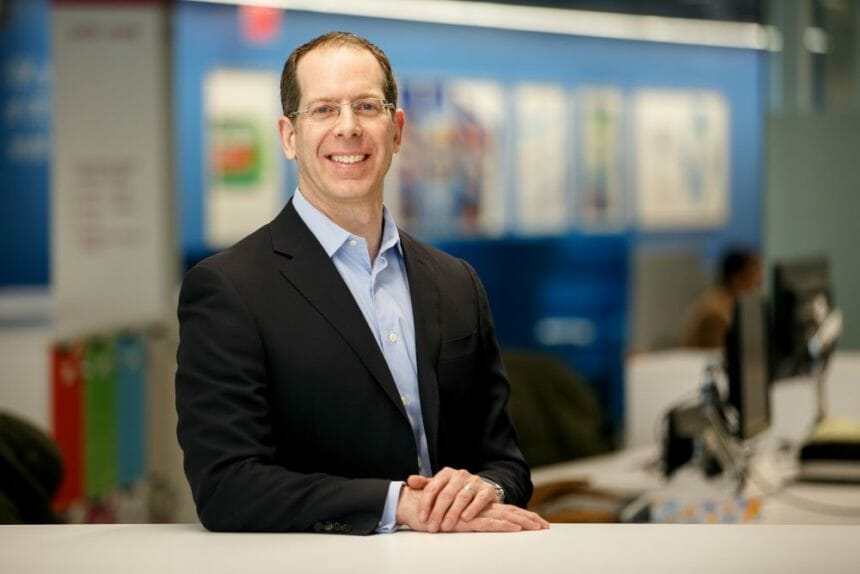In healthcare, everything starts – and ends – with the patient. It’s a universally recognized truth, yet too often, the industry seems to lose that focus.
That’s about to change. In the near future, healthcare as we know it won’t exist. We are on the verge of a shift from healthcare to science-led self-care, driven by three things: digitization, technology and consumers increasingly taking the wheel of their own health and wellness journeys. Integral to this transformation is that the link between consumer and market is collapsing, and lines blur as stages of development telescope, with R&D, marketing and other functions working in multidisciplinary collaboration. Together, these elements can keep the level of care high and costs low; our industry, ourselves included.
The shift is already happening. It demands a proactive patient mindset and leverages highly personalized data and AI to empower consumers. Just a couple of years ago, consumers would get a sport or fitness device and soon after, they’d drop it in a drawer, forgotten. Today, they are relevant and practical: more than 44% of the U.S. population uses a device daily, a trend expected to continue as individuals begin to use ingestible sensors and external trackers to collect data about their health, environment, nutrition and activities. These devices help individuals better understand their bodies, pick up on any unusual indicators and make better-informed decisions about their health
Gathered through checks from heart monitors to glucose sensors, rich data also enables self-care practitioners to identify symptoms earlier and more accurately, understand how a symptom is progressing and intervene proactively. The first hospital “smart bed” from EarlySense is not merely a place to convalesce; it provides a constant flow of patient data through continuous monitoring. Stored and secured via a distributed ledger, personal patient data will only be accessible when an individual grants permission and access. And yet, where we are is not where we will be, even four years from now.
In the emerging self-care landscape, services become more personal and practical, managed by well-known consumer-facing companies that assume new roles to drive value: Apple, with its focus on redefining its products as a way to democratize healthcare, and Google, which is working to understand pathology better through the application of AI. Amazon is making some of the boldest moves in the healthcare space. Recently having purchased PillPack, the online, full-service pharmacy, it has also moved with JPMorgan Chase and Berkshire Hathaway to jointly manage the health of its employees. It’s not hard to imagine that the biggest tech companies will continue to play ever-increasing roles as healthcare is transformed to self-care.
However, driving that shift doesn’t happen at that macro-level. To deliver — to enable individuals to do more, feel better and live longer — takes the establishment of working relationships that bear fruit. Our experience at GSK in actively establishing strategic partnerships with startups, entrepreneurs and academia who share in our passion has generated exciting results and can serve as a model for those seeking a path to transformative innovation. We are focusing innovation efforts in three key trend areas:
- Digital and artificial intelligence: Tools that empower consumers to take better care of themselves are enabling the shift to self-care. Taking medication on time is challenging for many patients; poor adherence has huge human costs, causing up to 125,000 deaths and more than 10% of hospitalizations annually.
- Diagnostics: The strategic underpinning of innovation in diagnostics will be devices that can monitor health at all times, not intermittently, as we are used to today, enabling proactively management and alleviation of symptoms.
- Platform technologies: Investing in platforms that reduce the time between identifying a target for disease intervention and finding a molecule that acts against it from an average of 5.5 years today to just one year is massively ambitious and on the horizon.
We’re entering a new age of customer expectation. They want products that are easy to use, and that keep them safe and healthy. To supply that, to create true patient-centric solutions, healthcare and pharmaceutical companies will have to shed institutionalized habits and customs, leveraging cross-disciplinary collaboration to reimagine what’s possible and necessary from the perspective of the individuals who will use their products.
Will this shift to self-care replace healthcare? Not entirely; people get sick and need medical care. But, as self-care evolves, as more and more people have the tools and technologies that allow them to care more mindfully for their own bodies, then ensuring their health and wellness increasingly becomes our shared goal. The patient, and his or her needs and desires, is, more than ever, at the center of it all.
Ian Marks is VP, R&D innovation, at GSK.







